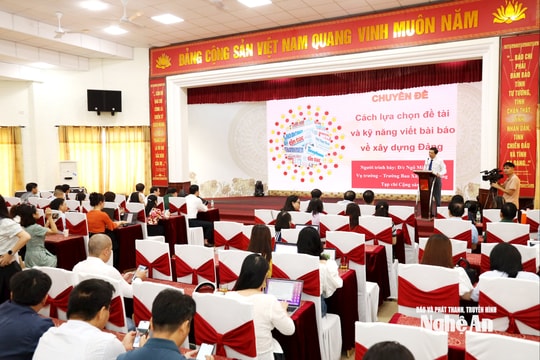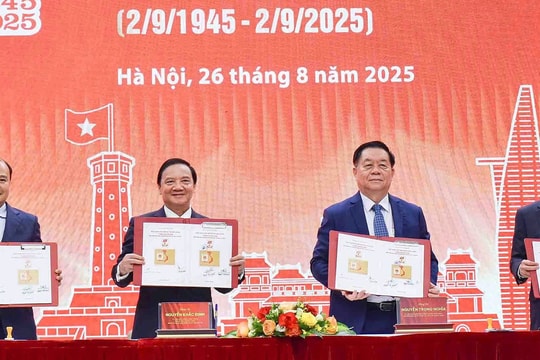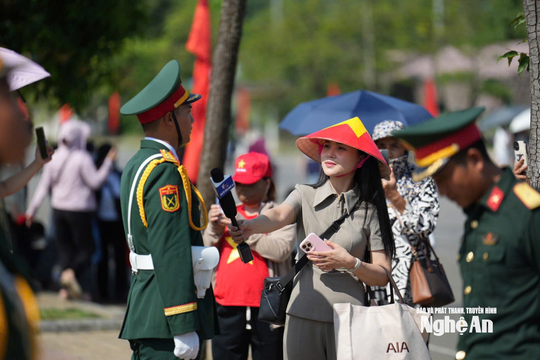Minister Nguyen Bac Son: "Do not let group interests dominate the press"
On the afternoon of November 14, during a group discussion on the Press Law (amended), Minister of Information and Communications Nguyen Bac Son expressed his opinion and shared additional information from the drafting agency on the amendment of this Law.
Our freedom of the press is very strong.
Opening his speech, Minister Nguyen Bac Son shared that it can be said that the Press Law (amended) is a difficult and complicated law. The Minister cited: “As we know, the Press Law was drafted from the 12th National Assembly, drafted up to the 17th time. After that, the program changed and stopped. The National Assembly and the National Assembly Standing Committee decided to move to another suitable time for approval.
Pursuant to Resolution 70 of the 13th National Assembly, the National Assembly officially assigned the Government to submit the Press Law (amended). The Press Law first appeared in 1989, then 10 years later, the first amendment was in 1999. After 16 years, in 2015, the Press Law was amended for the second time.
“This is a major law, which also reflects our State’s stance on press freedom. It’s not that we only talk about press freedom now that we have a new Constitution. Right now, we already have press freedom enshrined in the law. This is progress, the superiority of our State.
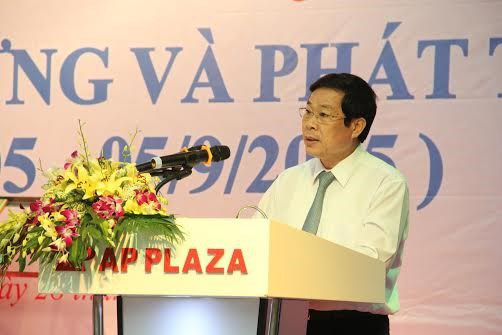 |
| Minister of Information and Communications Nguyen Bac Son. |
In fact, we see that currently only 20 countries have press laws. Many countries do not have press laws, including the US and China. Such large countries do not have press laws either,” Minister Nguyen Bac Son affirmed.
Although our current Press Law has many shortcomings, those shortcomings are the legal and practical basis for amending the Press Law.
The Minister explained that after 16 years of being in effect, the Press Law has shown many shortcomings. Because, in the current situation, information technology has developed very strongly, affecting all aspects of social life, press life, the way the press operates has also changed, the types of press have also increased, but the current press law has not kept up with the changes in press life.
The time to amend the Press Law is ripe, but writing and discussing the Press Law at the present time is very sensitive. The explosion of press information with the development of Information Technology and currently our country is a country with many press agencies.
“When we drafted Decree 72, there was a lot of information on the website, and foreign partners also asked why Vietnam did not have freedom of speech and freedom of the press. We said that currently, few countries have as many radio and television stations as Vietnam. We have radio and television stations in all provinces and cities. There are 3 central radio and television stations, 63 local radio and television stations. We have many press agencies, from the elderly to teenagers, children, youth, women all have newspapers, even gardening associations have newspapers. All members of society basically have newspapers. Few countries have such a large number of newspapers, no country has newspapers of ministries and branches” - said the Minister.
The Minister also pointed out that because there are so many press agencies, our press freedom is very strong and the press is also given a lot of attention.
Do not let group interests dominate the press
From the above analysis, Minister Nguyen Bac Son stated that, of course, in terms of society, it is necessary to reorganize the press force to be more effective and stronger. “With that spirit, drafting the press law is a challenge. Because of that challenge, we have proposed it 17 times but it has not been passed. This time we will have to make careful revisions, and this 11th session will review and make several more revisions. We cannot be perfect in everything, but we will gradually approach the current consistency” - the Minister emphasized.
In response to a question from a National Assembly delegate about why the Press Law does not regulate news sites and social media, Minister Nguyen Bac Son shared: “Previously, when the law was first drafted, some sanctions were included for electronic news sites or social media. But after much discussion, we also clearly saw many problems and currently there is no phrase referring to social media.”
The Minister explained that electronic news sites have been defined in Article 20 of Decree 72. Therefore, if the Press Law regulates electronic news sites, it will implicitly accept private newspapers. That is completely a private activity. This subject of regulation can be regulated by other laws. Specifically, Decree 72 can be upgraded to a law to sanction other types of press and press agencies.
Speaking more clearly about the issue of “not privatizing the press”, Minister Nguyen Bac Son said: “The Party’s viewpoint is that the press is a means of information, a propaganda tool and an especially important ideological weapon of the Party and the State. Therefore, the Press Law must also thoroughly understand this.”
“Our consistent viewpoint is that the press is revolutionary press. The press must be under the comprehensive and direct leadership of the Party and the management of the State and operate within the framework of the law. There must be no commercialization of the press, no privatization of the press, no hiding under the private sector, no group interests dominating the press.
The press does not need to be large but it needs to be streamlined. How to promote the power of the press. How to manage the press to develop more strongly but the number must be appropriate" - Minister Nguyen Bac Son emphasized.
Infonet

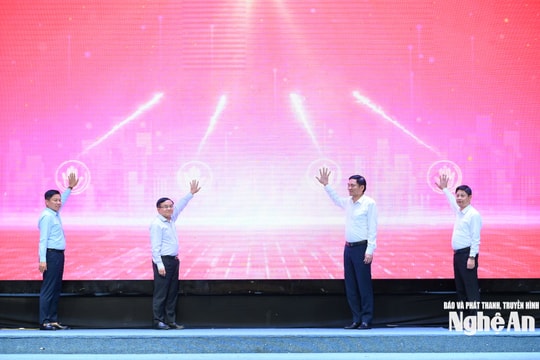
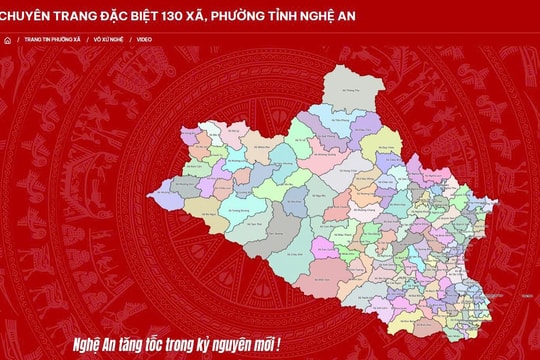
.jpg)

